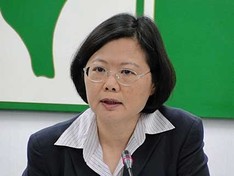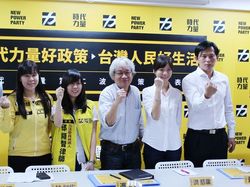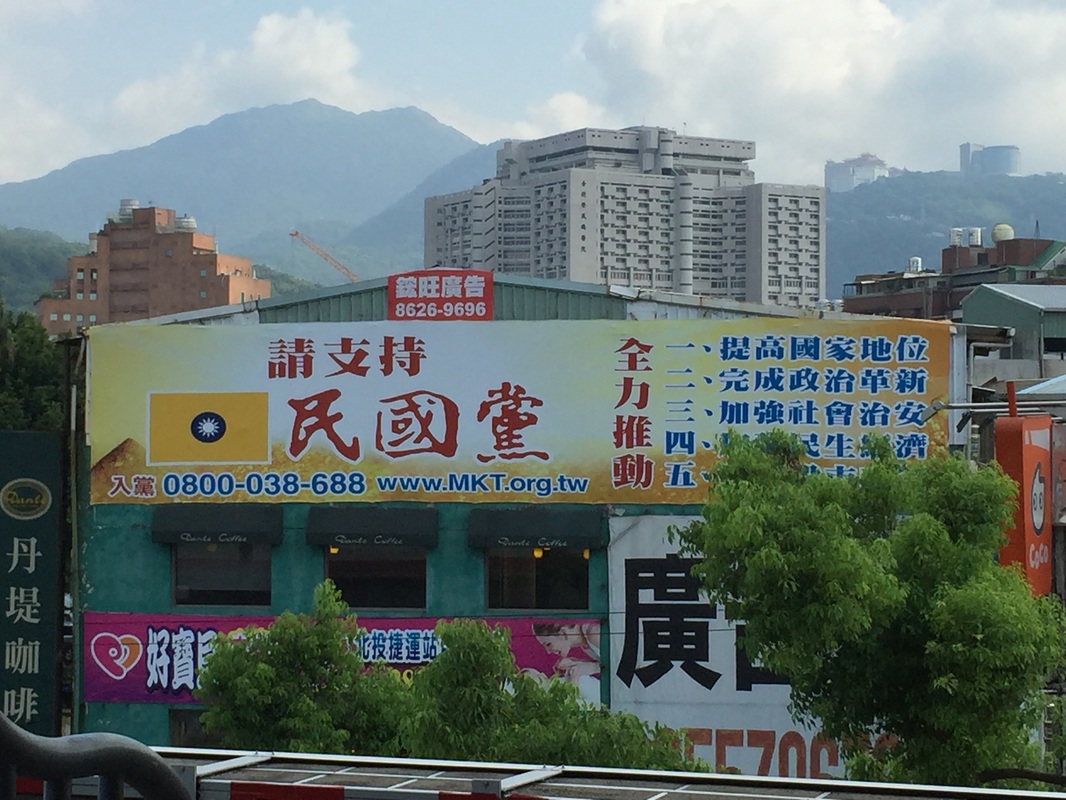1. Taiwanese voters care most about the economy, and they overwhelmingly evaluate it as "bad."
A Taiwan Brain Trust poll that came out yesterday reports that about 64% of respondents named economic development as the primary issue in next year's elections--far outstripping government effectiveness (about 17%) and cross-Strait relations (only about 4.5%).
Another poll from Taiwan Indicators Survey Research ll (TISR) that came out on Monday finds that an astounding 84% of respondents evaluated the overall state of the domestic economy as "bad" ("認為國內整體經濟狀況不好“); only 8% thought it was good.
The headline numbers in both these polls focus on support for the three major candidates--Tsai Ing-wen, Hung Hsiu-chu, and Soong Chu-yu (aka James Soong). I think they're burying the lede. Economic conditions are a powerful determinant of election outcomes: in general, incumbents get the credit when people think the economic is doing well, and they get the blame when it is not--whether or not they actually have much control over economic outcomes at all. So the fact that most Taiwanese poll respondents are emphasizing the state of the economy, and that the large majority think it is bad, bodes very poorly for the KMT. (Note that this cannot just be Pan-Green supporters expressing discontent about the economy: this is 84% of all respondents. Dissatisfaction with the economy crosses party lines.)
These results suggest that, like in the local elections in 2014, the KMT is going to be fighting a massive headwind. Even if they had a strong candidate (ahem, Chu Li-lun?) atop the ticket, I would expect them to lose with these numbers. With Hung Hsiu-chu as the nominee, and James Soong running yet another third-party campaign that's offering an alternative to Pan-Blue voters who don't like Hung, the presidential election already looks overdetermined. The KMT is going to lose, badly. And Tsai Ing-wen, by default, is going to win.
At this point, though, I'd be very cautious about interpreting an impending DPP victory as anything other than a rejection of the KMT. There will inevitably be people in Taiwan and in Washington, DC who will frame this outcome as a repudiation of closer cross-Strait relations with the PRC, or an endorsement of Taiwanese independence. It's time to start beating the drum that the election is not about cross-Strait relations. It's not about independence or unification. It's not really even about a new "third force" of youth activism and social progressive politics. The 2016 election is about the economy.

Dissatisfaction with the KMT is really high right now. Taiwan Brain Trust puts it at 71%, which is a significant improvement from December 2014, when the rate was 80%.
What is more surprising is that the DPP is still not very popular in absolute terms. Throughout 2015, the DPP has had higher negatives than positives in the Taiwan Brain Trust survey results. The most recent poll finds about 45% dissatisfied with the DPP, and 42% satisfied. That's actually a significant improvement as well; for polls in March, April, and June over half of respondents were dissatisfied with the DPP. The TISR results are more positive for both the DPP and KMT, probably because survey uses a "feelings thermometer" to rank the parties on a scale from 0 to 100: the DPP ranks slightly positively with a net score of 52.0, as compared to the KMT's 35.7. That's still not particularly strong given the circumstances.
Tsai Ing-wen's polling support is also still short of 50%; TISR finds 43.6% of respondents intend to vote for her, which is a new high in recent months. Undecideds and those saying they won't vote combined are still 25% of the electorate. Taiwan Brain Trust puts it a bit higher, at 46.8%.
What this suggests to me, again, is that Tsai and the DPP are positioned to do well in 2016 mostly because they're not Ma Ying-jeou and the KMT. Given how widespread dissatisfaction with the economy is right now, they're going to win a lot of swing votes as the "lesser of two evils."

The Taiwan Solidarity Union has three seats in the current LY. They're the deep green alternative to the DPP, and they've been struggling to hang on ever since the electoral system change in 2008 shut them out of the legislature. They need to pass 5% in the party list vote to get seats, which they did easily in 2012, winning 8.96%. They're currently polling at less than half that: they're at about 4.1% in the Taiwan Brain Trust poll. They're being outpolled now by the New Power Party (時代力量), at 6.8%, and James Soong's People First Party at 5.6%.
There's a real possibility that the NPP takes a lot of votes from the TSU, passing the PR threshold while the TSU doesn't, and effectively replacing it on the deep green end of the political spectrum. It's notoriously difficult to poll support for small parties, so treat these as very rough estimates. The NPP is deliberately trying to appeal to young voters, who turn out at lower rates and are less predictable in their voting patterns than older generations. For another, the NPP is actually cooperating with the DPP in its district nominations--I'm not sure how this might affect the party list vote.
(A third reason to be wary of the Taiwan Brain Trust numbers on the small parties: Hsu Yung-ming (徐永明), a professor at Soochow University, is both the polling director for the survey and now a legislative candidate for the NPP.)
There's a real danger here for the Pan-Green camp if their voters fail to coordinate in the party list vote: the Green Party and Social Democratic Party are running a joint list that may appeal to a lot of the same young, well-educated voters that the NPP is making a play for. They're currently polling at 1.8%, according to the Taiwan Brain Trust survey. It's not hard to imagine the NPP, Green-SDP, and TSU all pulling some Pan-Green support and each getting 3-4% of the PR list vote, leaving them all with no seats, while the PFP passes the threshold and wins several seats. If the district results end up closely split, the Pan-Green camp could even be denied a majority in the LY despite a significant advantage in the overall share of the vote.
While I don't think it's particularly likely to happen, a Pan-Green win in the popular vote that leaves a Pan-Blue majority in control of the legislature would be a serious problem for Taiwan's democracy. So one thing I'll be paying close attention to in this election is how, or whether, this coordination problem is resolved in some way before the election.

 RSS Feed
RSS Feed
